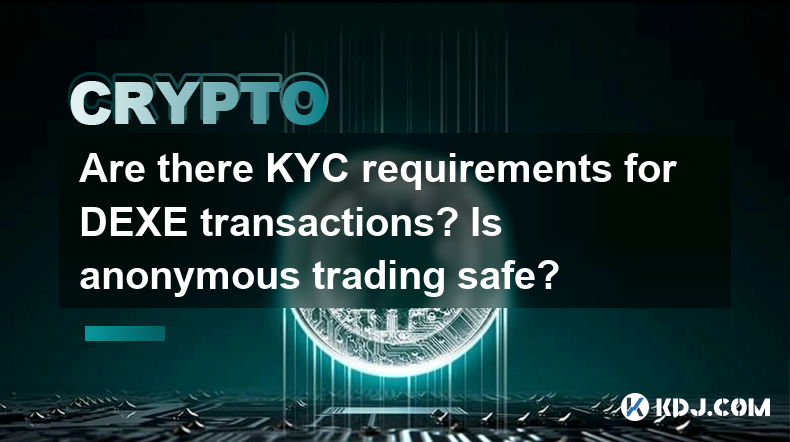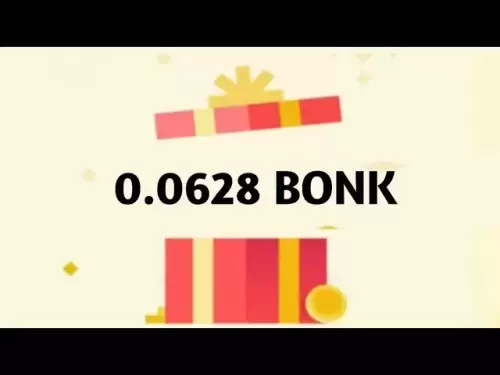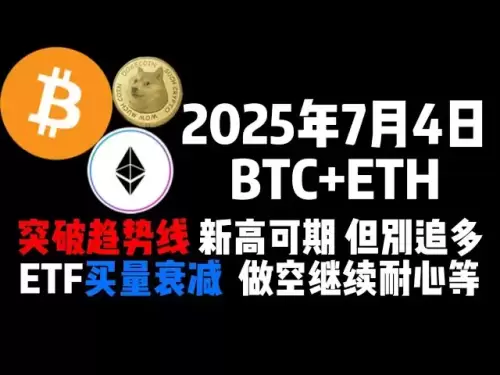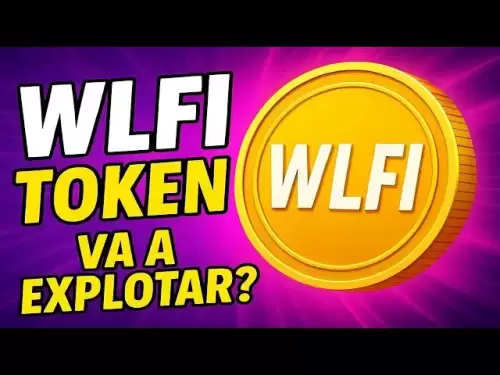-
 Bitcoin
Bitcoin $109,060.5091
-0.60% -
 Ethereum
Ethereum $2,554.0291
-1.47% -
 Tether USDt
Tether USDt $1.0003
0.00% -
 XRP
XRP $2.2391
-2.33% -
 BNB
BNB $659.7691
-0.31% -
 Solana
Solana $150.5458
-2.56% -
 USDC
USDC $1.0000
0.00% -
 TRON
TRON $0.2873
1.05% -
 Dogecoin
Dogecoin $0.1669
-3.75% -
 Cardano
Cardano $0.5827
-3.21% -
 Hyperliquid
Hyperliquid $38.9857
-3.92% -
 Sui
Sui $2.9281
-3.02% -
 Bitcoin Cash
Bitcoin Cash $482.7177
-4.36% -
 Chainlink
Chainlink $13.3876
-2.65% -
 UNUS SED LEO
UNUS SED LEO $9.0546
0.46% -
 Avalanche
Avalanche $18.1281
-3.21% -
 Stellar
Stellar $0.2404
-1.65% -
 Toncoin
Toncoin $2.8065
-2.82% -
 Shiba Inu
Shiba Inu $0.0...01158
-2.97% -
 Litecoin
Litecoin $88.4252
-2.90% -
 Hedera
Hedera $0.1559
-2.34% -
 Monero
Monero $319.4730
-2.17% -
 Polkadot
Polkadot $3.4421
-4.06% -
 Dai
Dai $1.0000
0.00% -
 Ethena USDe
Ethena USDe $1.0002
0.01% -
 Bitget Token
Bitget Token $4.4632
-2.78% -
 Uniswap
Uniswap $7.3746
-3.91% -
 Pepe
Pepe $0.0...09800
-6.01% -
 Aave
Aave $269.6237
-3.51% -
 Pi
Pi $0.4834
-3.35%
Are there KYC requirements for DEXE transactions? Is anonymous trading safe?
DEXE allows anonymous trading without KYC, relying on blockchain security and smart contracts for safety, but users must be wary of phishing and regulatory risks.
May 01, 2025 at 10:01 pm

In the world of decentralized finance (DeFi), DEXE stands out as a platform that allows users to engage in decentralized trading. A common question among users is whether there are Know Your Customer (KYC) requirements for DEXE transactions and whether anonymous trading on such platforms is safe. This article delves into these concerns, providing a comprehensive understanding of DEXE's approach to KYC and the safety of anonymous trading.
Understanding KYC in the Context of DEXE
Know Your Customer (KYC) is a process used by financial institutions to verify the identity of their clients. Traditional centralized exchanges often require KYC to comply with regulations and prevent illegal activities like money laundering. However, DEXE operates as a decentralized exchange (DEX), which typically does not enforce KYC requirements.
DEXE's Approach to KYC: Unlike centralized exchanges, DEXE does not require users to undergo KYC verification. This means that users can engage in transactions without revealing their personal information. The absence of KYC aligns with the ethos of decentralization, promoting user privacy and autonomy.
Implications of No KYC: The lack of KYC requirements on DEXE allows for greater privacy and accessibility. Users can trade without the fear of their personal data being compromised or tracked. However, this also means that DEXE relies on blockchain transparency and smart contracts to ensure the integrity of transactions.
The Safety of Anonymous Trading on DEXE
Anonymous trading, while appealing for privacy-conscious users, raises concerns about safety and security. DEXE's decentralized nature offers several layers of protection that can make anonymous trading safer than on centralized platforms.
Blockchain Security: Transactions on DEXE are recorded on the blockchain, which is a public ledger that is immutable and transparent. This means that while the identities of the traders remain anonymous, the transactions themselves are verifiable and secure.
Smart Contract Execution: DEXE uses smart contracts to facilitate trades. These are self-executing contracts with the terms directly written into code. Once the conditions are met, the contract executes automatically, reducing the risk of fraud or manipulation.
User Control Over Funds: On DEXE, users maintain control over their funds through non-custodial wallets. This means that users do not need to deposit their assets into the exchange, reducing the risk of funds being hacked or seized.
Risks Associated with Anonymous Trading
While DEXE provides mechanisms to enhance the safety of anonymous trading, there are still risks that users should be aware of.
Phishing and Scams: Anonymous trading platforms can be targets for phishing attacks and scams. Users must be vigilant and use secure methods to access the platform and manage their wallets.
Regulatory Risks: Trading anonymously on DEXE may expose users to regulatory risks, depending on their jurisdiction. Some countries have strict regulations on cryptocurrency trading, and engaging in anonymous transactions could lead to legal repercussions.
Technical Vulnerabilities: While smart contracts are designed to be secure, they are not immune to vulnerabilities. Users should stay informed about any known issues or updates related to the smart contracts used by DEXE.
Best Practices for Safe Anonymous Trading on DEXE
To maximize the safety of anonymous trading on DEXE, users should follow several best practices:
Use Secure Wallets: Ensure that you use reputable and secure non-custodial wallets to manage your funds. Hardware wallets offer an additional layer of security.
Enable Two-Factor Authentication (2FA): Implement 2FA on any accounts or services connected to your DEXE transactions to add an extra layer of security.
Stay Informed: Keep up to date with the latest security practices and any updates from DEXE. Being aware of potential vulnerabilities and how to mitigate them is crucial.
Verify Transactions: Always double-check the details of your transactions before confirming them. This helps prevent accidental transfers or falling victim to scams.
How to Start Trading Anonymously on DEXE
For those interested in starting to trade anonymously on DEXE, here are the steps to follow:
Download a Non-Custodial Wallet: Choose a reputable non-custodial wallet that supports the cryptocurrencies you wish to trade. Examples include MetaMask, Trust Wallet, or hardware wallets like Ledger.
Connect Wallet to DEXE: Visit the DEXE platform and connect your wallet. This usually involves clicking on a "Connect Wallet" button and selecting your wallet from the list of options.
Add Liquidity or Trade: Once connected, you can add liquidity to the pools or start trading. Navigate to the trading section, select the tokens you want to trade, and enter the amount. Confirm the transaction through your wallet.
Monitor and Manage Your Trades: Keep an eye on your trades and manage your positions as needed. Use the platform's tools to track your performance and make adjustments.
Frequently Asked Questions
Q: Can I use DEXE if I live in a country with strict cryptocurrency regulations?
A: While DEXE does not require KYC, it is important to understand the regulations in your country. Trading anonymously on DEXE may be against the law in some jurisdictions, so it's crucial to research and comply with local laws.
Q: What happens if there is a security breach on DEXE?
A: DEXE's decentralized nature means that users maintain control over their funds. In the event of a security breach, funds held in non-custodial wallets are generally safer than those on centralized exchanges. However, users should always follow best practices to protect their assets.
Q: How can I ensure the smart contracts used by DEXE are secure?
A: Stay informed about any audits or updates related to DEXE's smart contracts. Platforms like DEXE often undergo regular security audits to identify and fix vulnerabilities. Users can also use tools like Etherscan to review the smart contract code and its history.
Q: Is it possible to recover funds if I accidentally send them to the wrong address on DEXE?
A: Unfortunately, transactions on the blockchain are irreversible. If you send funds to the wrong address, they are generally unrecoverable. Always double-check the recipient's address before confirming a transaction.
Disclaimer:info@kdj.com
The information provided is not trading advice. kdj.com does not assume any responsibility for any investments made based on the information provided in this article. Cryptocurrencies are highly volatile and it is highly recommended that you invest with caution after thorough research!
If you believe that the content used on this website infringes your copyright, please contact us immediately (info@kdj.com) and we will delete it promptly.
- Bitcoin's Pattern Break: Are HODLers the Key to the Next Surge?
- 2025-07-04 18:50:12
- Meme Coins, Crypto Tokens, and Joke Creation: A New Yorker's Take
- 2025-07-04 18:30:12
- Level Up Your Lawn: Grass Seeds, Garden Experts, and the £1 Coin Hack!
- 2025-07-04 18:30:12
- Sui Price Surges Amid Lion Group's Treasury Move: What's Next?
- 2025-07-04 16:30:13
- BLAST Price Bounces Back After Token Unlock: Is the Rally Real?
- 2025-07-04 17:10:16
- Wormhole, Coinbase, and Interoperability: A New Era for Crypto?
- 2025-07-04 16:30:13
Related knowledge

How to customize USDT TRC20 mining fees? Flexible adjustment tutorial
Jun 13,2025 at 01:42am
Understanding USDT TRC20 Mining FeesMining fees on the TRON (TRC20) network are essential for processing transactions. Unlike Bitcoin or Ethereum, where miners directly validate transactions, TRON uses a delegated proof-of-stake (DPoS) mechanism. However, users still need to pay bandwidth and energy fees, which are collectively referred to as 'mining fe...

USDT TRC20 transaction is stuck? Solution summary
Jun 14,2025 at 11:15pm
Understanding USDT TRC20 TransactionsWhen users mention that a USDT TRC20 transaction is stuck, they typically refer to a situation where the transfer of Tether (USDT) on the TRON blockchain has not been confirmed for an extended period. This issue may arise due to various reasons such as network congestion, insufficient transaction fees, or wallet-rela...

How to cancel USDT TRC20 unconfirmed transactions? Operation guide
Jun 13,2025 at 11:01pm
Understanding USDT TRC20 Unconfirmed TransactionsWhen dealing with USDT TRC20 transactions, it’s crucial to understand what an unconfirmed transaction means. An unconfirmed transaction is one that has been broadcasted to the blockchain network but hasn’t yet been included in a block. This typically occurs due to low transaction fees or network congestio...

How to check USDT TRC20 balance? Introduction to multiple query methods
Jun 21,2025 at 02:42am
Understanding USDT TRC20 and Its ImportanceUSDT (Tether) is one of the most widely used stablecoins in the cryptocurrency market. It exists on multiple blockchain networks, including TRC20, which operates on the Tron (TRX) network. Checking your USDT TRC20 balance accurately is crucial for users who hold or transact with this asset. Whether you're sendi...

What to do if USDT TRC20 transfers are congested? Speed up trading skills
Jun 13,2025 at 09:56am
Understanding USDT TRC20 Transfer CongestionWhen transferring USDT TRC20, users may occasionally experience delays or congestion. This typically occurs due to network overload on the TRON blockchain, which hosts the TRC20 version of Tether. Unlike the ERC20 variant (which runs on Ethereum), TRC20 transactions are generally faster and cheaper, but during...

The relationship between USDT TRC20 and TRON chain: technical background analysis
Jun 12,2025 at 01:28pm
What is USDT TRC20?USDT TRC20 refers to the Tether (USDT) token issued on the TRON blockchain using the TRC-20 standard. Unlike the more commonly known ERC-20 version of USDT (which runs on Ethereum), the TRC-20 variant leverages the TRON network's infrastructure for faster and cheaper transactions. The emergence of this version came as part of Tether’s...

How to customize USDT TRC20 mining fees? Flexible adjustment tutorial
Jun 13,2025 at 01:42am
Understanding USDT TRC20 Mining FeesMining fees on the TRON (TRC20) network are essential for processing transactions. Unlike Bitcoin or Ethereum, where miners directly validate transactions, TRON uses a delegated proof-of-stake (DPoS) mechanism. However, users still need to pay bandwidth and energy fees, which are collectively referred to as 'mining fe...

USDT TRC20 transaction is stuck? Solution summary
Jun 14,2025 at 11:15pm
Understanding USDT TRC20 TransactionsWhen users mention that a USDT TRC20 transaction is stuck, they typically refer to a situation where the transfer of Tether (USDT) on the TRON blockchain has not been confirmed for an extended period. This issue may arise due to various reasons such as network congestion, insufficient transaction fees, or wallet-rela...

How to cancel USDT TRC20 unconfirmed transactions? Operation guide
Jun 13,2025 at 11:01pm
Understanding USDT TRC20 Unconfirmed TransactionsWhen dealing with USDT TRC20 transactions, it’s crucial to understand what an unconfirmed transaction means. An unconfirmed transaction is one that has been broadcasted to the blockchain network but hasn’t yet been included in a block. This typically occurs due to low transaction fees or network congestio...

How to check USDT TRC20 balance? Introduction to multiple query methods
Jun 21,2025 at 02:42am
Understanding USDT TRC20 and Its ImportanceUSDT (Tether) is one of the most widely used stablecoins in the cryptocurrency market. It exists on multiple blockchain networks, including TRC20, which operates on the Tron (TRX) network. Checking your USDT TRC20 balance accurately is crucial for users who hold or transact with this asset. Whether you're sendi...

What to do if USDT TRC20 transfers are congested? Speed up trading skills
Jun 13,2025 at 09:56am
Understanding USDT TRC20 Transfer CongestionWhen transferring USDT TRC20, users may occasionally experience delays or congestion. This typically occurs due to network overload on the TRON blockchain, which hosts the TRC20 version of Tether. Unlike the ERC20 variant (which runs on Ethereum), TRC20 transactions are generally faster and cheaper, but during...

The relationship between USDT TRC20 and TRON chain: technical background analysis
Jun 12,2025 at 01:28pm
What is USDT TRC20?USDT TRC20 refers to the Tether (USDT) token issued on the TRON blockchain using the TRC-20 standard. Unlike the more commonly known ERC-20 version of USDT (which runs on Ethereum), the TRC-20 variant leverages the TRON network's infrastructure for faster and cheaper transactions. The emergence of this version came as part of Tether’s...
See all articles

























































































